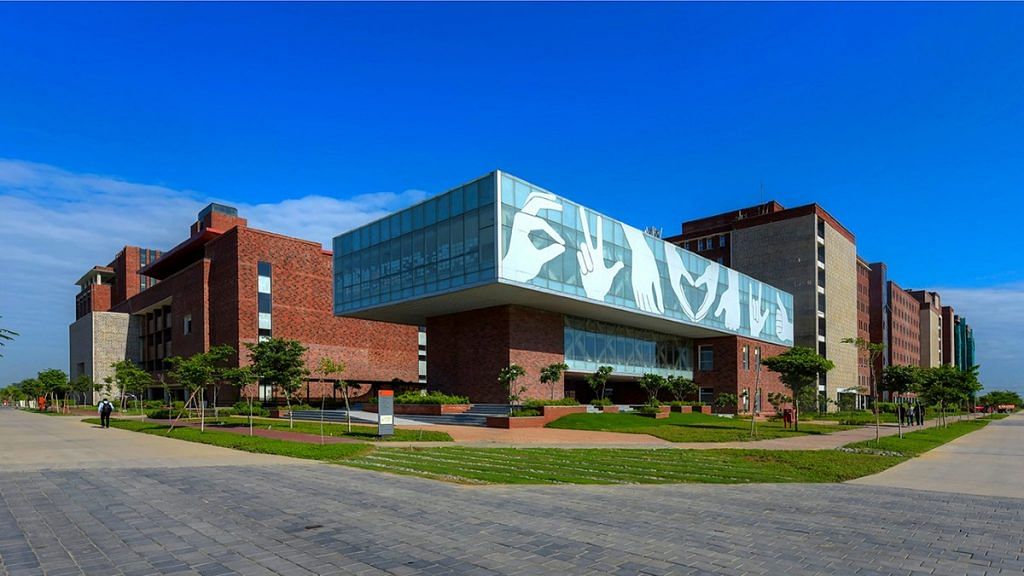Thank you dear subscribers, we are overwhelmed with your response.
Your Turn is a unique section from ThePrint featuring points of view from its subscribers. If you are a subscriber, have a point of view, please send it to us. If not, do subscribe here: https://theprint.in/subscribe/
Life is learning, and learning is life! Every day and every minute counts, and the experiences shape us. Have you ever wondered what this joy of learning is?
Talking about schools, schooling and what goes into making a good school, the rise of liberal arts education, the learning process itself has to evolve to keep up with times. Over three decades of working with schools and travelling worldwide to understand how we learn have been my life’s key driver for happiness.
After visiting countries from the east to west, including Singapore, Finland and the USA, looking at the way children learn and what makes the joy of learning come alive at schools, I thought it all begins with reading. It is not about print or digital, as the art of reading alone helps children pick up skills for life. They experience values and virtues working with mentors and peers, adding value to the school curriculum.
The 6 C’s: Critical thinking; Creativity; Collaboration; Communication; Character; and Citizenship. When you read, your imagination makes you think; this is step one for any action. Today, with fleeting attention and the lack of retention, we must focus on the mind, consciousness and thought. Our thought must govern our actions, and we are in times of knee-jerk reactions, which leads to a lack of trust and questioning relationships.
How do we move from critical thinking to good citizenship? The answer lies in spreading the joy of learning and focusing on reading, writing and speaking. You will say this is done at school, and I disagree. Many first-generation schoolgoers, our young people, have yet to have the privilege of listening and learning from family members as in the last century. There is a need for good mentorship and role models. It is not easy to find an adult who will be a voracious reader, our teachers at schools are all from the school systems where they have relied only on rote learning, and the need for reading beyond the text and sharing stories seems alien to most.
With over thirty years of working with schools and focusing more on schooling, my experience reaffirms that we must empower every individual with personal and social development. This is only possible if they experince the joy of learning and are good at reading, writing and speaking. To prepare a child to face the world, we must first read as a family, community, and nation. It is essential to be with a book and delve deeper within. The power of reading will shape our speaking in turn.
Today we must look at reading, writing and speaking as skills for life. Please understand the medium and language; read what you enjoy and with leisure. Reading newspapers and magazines adds to our knowledge of society and gives us information. The application of knowledge is most crucial for us to be better educated. Talking about education and learning, we need to grow as a nation of righteous citizens, and this will make India a nation of thinkers and doers.
The New Education Policy focuses on learning beyond the need for marks or merit. Happy teachers will alone help transform the education system. The teachers first need to experience the joy of learning – reading, writing and speaking. This will empower them with their personal and social development and help them become the role models we need for our young people. Literacy and numeracy are not the best measures for learning. The passion for reading, writing and speaking should be the way forward.
As an author and a practitioner of experiential learning, for me reading is a necessity and part of my everyday life. Parents and adults request me for the success mantra for children. They even ask for tuition and remedial beyond the school system. My only answer is that every child must read to lead. This begins with the people the child lives with and unconditionally accepts as role models. Anyone who reads will be able to write and speak. They will experience the joy of learning.
The last few months have been full of literary festivals and book fairs. Seeing young people throng the stalls at literary events has been an absolute pleasure. Speaking with young people and looking at how we publish quality books in our country has given me tremendous hope for the future of reading and the joy within.
“Don’t just teach your children to read…Teach them to question what they read. Teach them to question everything”. George Carlin
The joy of learning is an extensive and profound learning experience that immerses us in a model of inquiry and problem-based learning. Looking back at the story of India, a civilisation rich with literature and how we learnt for generations, you will find that reading alone is at the core of the joy of learning. Read-aloud sessions begin education and form a narrative for a life full of knowledge.
– Sandeep Dutt focuses on school transformation, emphasising culture as a service. Over 30 years of experience have empowered thousands of teachers and touched the lives of nearly a million children.
These pieces are being published as they have been received – they have not been edited/fact-checked by ThePrint.
